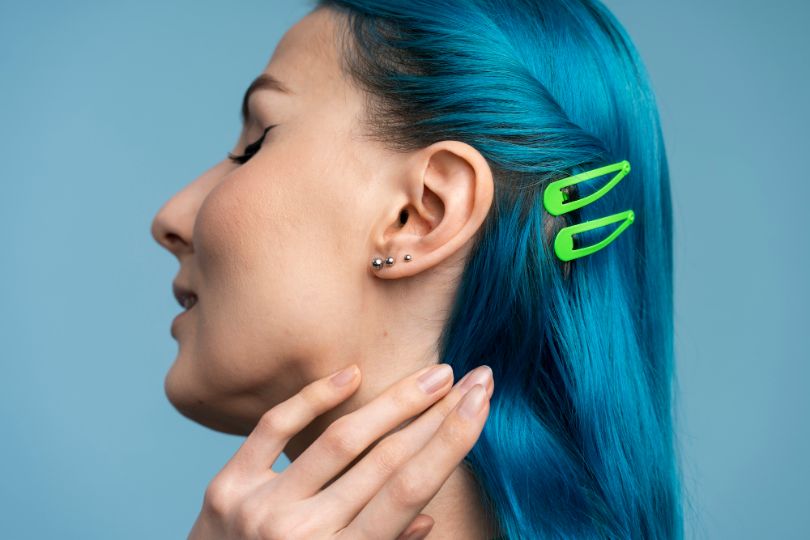Do you love dark chocolate? If so, you are not alone. Many people over 55 years old enjoy the rich and bitter taste of dark chocolate.
Why is dark chocolate good for you?
Dark chocolate contains minerals that your body needs, such as iron, magnesium, and zinc. These minerals help your blood, bones, and immune system function properly. Dark chocolate has anti-inflammatory properties, which means it can reduce swelling and pain in your body. Inflammation can cause many diseases, such as arthritis, diabetes, and cancer.
Is chocolate good for you?
You’ve probably already heard of chocolate improving the mood, but there are more health benefits to chocolate that you may be unaware of. Before you go raiding the candy jar, keep in mind that these health benefits pertain to dark chocolate only. That is anything with a cocoa content over 65%. Milk chocolate is probably what you are used to, but if you are interested in eating healthy, it might be a good idea to give dark chocolate a try.
The latest research by Mintel reveals that 35% of all adult consumers favor dark chocolate in the US
Nearly half of the respondents over 55 years old, 46% of men and 48% of women, said they prefer dark chocolate over milk chocolate. The preference for bittersweet chocolate reflects the growing awareness of its health benefits. In fact, almost three out of four chocolate consumers know that bittersweet chocolate is healthier than milk chocolate. Here are 6 health benefits of dark chocolate for older adults.
- Heart Health – Dark chocolate is like a superhero for your heart. Due to the presence of antioxidants in dark chocolate, studies have found that in older adults with high blood pressure, a stick of dark chocolate a day can lower blood pressure levels. In addition, dark chocolate has been known to lower cholesterol levels by up to 10%. The flavonoids in dark chocolate can help lower blood pressure. This way, it reduces the risk of heart disease. It even improves blood flow to your heart. So, indulge wisely and keep that ticker ticking!
Key takeaway: Dark chocolate is a heart-healthy superhero with antioxidants and flavonoids that lower blood pressure, improve blood flow, and reduce heart disease risk.
- Mood Booster – Feeling a bit down? Dark chocolate can come to your rescue. According to the National Library of Medicine’s research dark chocolate stimulates the production of endorphins. Endorphins are feel-good hormones in your brain. It reduces stress hormones in your body. It’s like a little calm in every bite, perfect for unwinding after a tough day. Then there’s theobromine which stimulates like caffeine. Finally, bittersweet chocolate also contains serotonin. It acts as an antidepressant. So, whenever you are stressed, a piece of black chocolate can be your sidekick.
Key takeaway: Dark chocolate boosts mood with endorphins and reduces stress hormones. It’s your stress-relief sidekick.
- Low-Fat Treat – Want a guilt-free treat? Dark chocolate is here for you. It’s low in fat compared to milk chocolate. In the small amount of fat in dark chocolate, one-third of the fats are healthy for the body. The remaining two-thirds consist of neutral fat and saturated fat. So, you can fulfil your chocolate cravings without piling on the pounds. All you must keep in mind is that you always eat in moderation.
Key takeaway: Indulge in dark chocolate guilt-free; it’s lower in fat than milk chocolate, with a portion of its fat being healthy. Just remember to enjoy it in moderation.
- Metabolism Balance – Research from the Journal of Proteome Research claims that dark chocolate contains magnesium. It plays a vital role in regulating your body’s metabolism. A balanced metabolism is essential for maintaining a healthy weight and complete well-being.
Key takeaway: Dark chocolate’s magnesium content supports a balanced metabolism for overall well-being.
- Skin Protector – Dark chocolate contains antioxidants that protect your skin from UV damage. It can help reduce the effects of sunburn and keep your skin looking radiant.
Key takeaway: Dark chocolate protects your skin from the sun, making it look better.
- Diabetes Support – Unbelievably, dark chocolate can help regulate blood sugar levels. As per studies, Flavonoids in dark chocolate can improve insulin sensitivity. So, it is a sweet treat for those with diabetes when enjoyed in moderation.
Key takeaway: Moderate consumption of dark chocolate can improve insulin sensitivity and help manage blood sugar levels.
Nutritional facts about dark chocolate
A dark chocolate bar that has 70–85% cocoa solids contain the following nutrients in a 101-gram (g) serving, according to the United States Department of Agriculture :
Calories – 604
604 calories (about 48 minutes of running) are the amount of energy that a 101-gram bar of dark chocolate with 70–85% cocoa solids provide. This is about one-fourth of the average daily calorie intake for an adult (source – https://www.canada.ca/en/health-canada/services/food-nutrition/healthy-eating/dietary-reference-intakes/tables.html).
Protein- 7.87 g
7.87 grams of protein is the amount of amino acids that the chocolate bar contains. Protein is essential for building and repairing tissues in your body. The recommended dietary allowance (RDA) for protein for an adult is 0.8 grams per kilogram of body weight per day (source – https://nap.nationalacademies.org/read/10490/chapter/32). For example, if you weigh 70 kilograms, you will need about 56 grams of protein per day. The chocolate bar would provide about 14% of your daily protein needs.
Carbohydrates- 43.06 g
46.36 grams of carbohydrates is the amount of sugars and starches that the chocolate bar contains. Carbohydrates are the main source of energy for your brain and muscles. The dietary reference intakes for macronutrients recommend consuming 45% to 65% of your total calories from carbohydrates (source – https://www.canada.ca/en/health-canada/services/food-nutrition/healthy-eating/dietary-reference-intakes/tables/reference-values-macronutrients-dietary-reference-intakes-tables-2005.html). For example, if you eat 2,000 calories (about 160 minutes of running) per day, you should aim for 225 to 325 grams (about the weight of a can of soup) of carbohydrates per day. The chocolate bar would provide about 14% to 21% of your daily carbohydrate needs.
Dietary fiber- 11 g
11 grams of dietary fiber is the amount of indigestible plant material that the chocolate bar contains. Fiber helps your digestive system function properly and may lower your risk of diabetes and heart disease. The adequate intake (AI) for fiber for an adult is 25 grams per day for women and 38 grams per day for men (source – https://nap.nationalacademies.org/read/10490/chapter/32). The chocolate bar would provide about 29% to 44% of your daily fiber needs.
Sugar- 24.23 g
24.23 grams of sugar is the amount of simple carbohydrates that the chocolate bar contains. Sugar adds sweetness and flavor to foods, but it also adds calories and can harm your teeth. The World Health Organization recommends limiting your free sugar intake to less than 10% of your total calories per day. For example, if you eat 2,000 calories (about 160 minutes of running) per day, you should limit your free sugar intake to less than 50 grams per day. The chocolate bar would provide almost half of that amount.
Iron- 12.02 milligrams (mg)
12.02 milligrams (about half the weight of a grain of rice) of iron is the amount of mineral that the chocolate bar contains. Iron is important for making red blood cells and transporting oxygen throughout your body. The RDA for iron for an adult is 8 milligrams (about the weight of a grain of table salt) per day for men and 18 milligrams (about twice the weight of a grain of table salt) per day for women (source – https://nap.nationalacademies.org/read/10490/chapter/32). The chocolate bar would provide about 67% to 150% of your daily iron needs, depending on your sex.
230 mg of magnesium and 3034 mg of zinc
230 milligrams (about twice the weight of a business card) of magnesium are the amount of mineral that the chocolate bar contains. Magnesium is involved in many biochemical reactions in your body, such as muscle and nerve function, blood pressure regulation, and bone health. The RDA for magnesium for an adult is 310 to 320 milligrams (about the weight of ten grains of rice) per day for women and 400 to 420 milligrams (about half the weight of a small paper clip) per day for men (https://nap.nationalacademies.org/read/10490/chapter/32). The chocolate bar would provide about 58% to 74% of your daily magnesium needs, depending on your sex.
Final Words
Calling all chocolate lovers in the USA, it is time to make a smart choice. Not only does dark chocolate taste good, but it also supercharges your health. So, think dark, think healthy, and savor every delightful bite.
References
- 2013. Dark chocolate is creeping up on the ever-popular milk chocolate. Mintel. https://www.mintel.com/press-centre/dark-chocolate-is-creeping-up-on-the-ever-popular-milk-chocolate/
- 2011. Cocoa and Chocolate in Human Health and Disease. National Library of Medicine. https://www.ncbi.nlm.nih.gov/pmc/articles/PMC4696435/
- 2017. Effects of Dark Chocolate and Almonds on Cardiovascular Risk Factors in Overweight and Obese Individuals: A Randomized Controlled‐Feeding Trial. JAHA. https://www.ahajournals.org/doi/full/10.1161/JAHA.116.005162
- 2021. Consumption of 85% cocoa dark chocolate improves mood in association with gut microbial changes in healthy adults: a randomized controlled trial. National Library of Medicine. https://pubmed.ncbi.nlm.nih.gov/34530112/
- 2009. Metabolic Effects of Dark Chocolate Consumption on Energy, Gut Microbiota, and Stress-Related Metabolism in Free-Living Subjects. ACS Publications. https://pubs.acs.org/doi/abs/10.1021/pr900607v#:~:text=The%20study%20provides%20strong%20evidence,host%20and%20gut%20microbial%20metabolism.
- 2017. Use of dark chocolate for diabetic patients: a review of the literature and current evidence. National Library of Medicine. https://www.ncbi.nlm.nih.gov/pmc/articles/PMC5699188/







